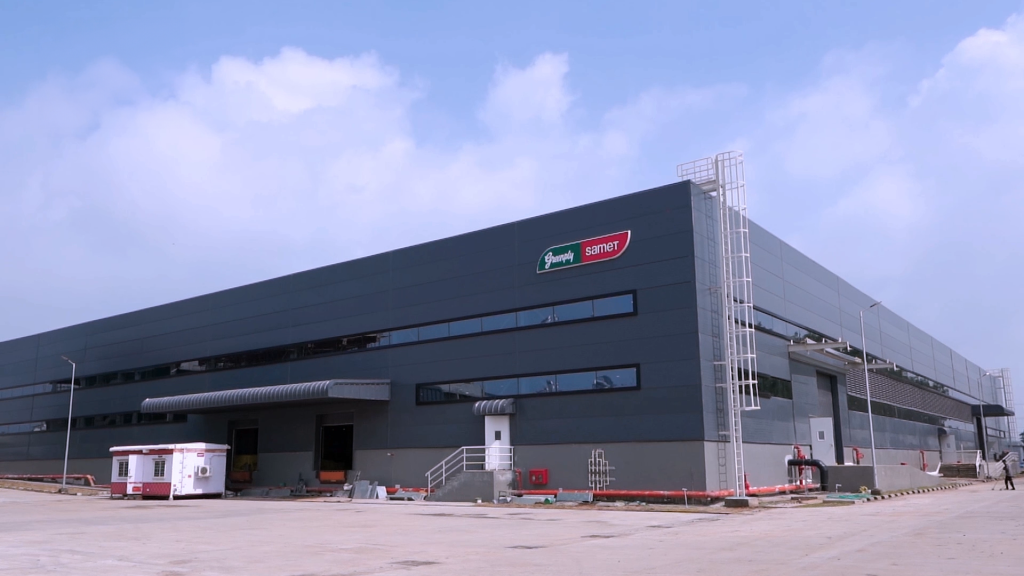A 50:50 joint venture between Greenply Industries and Samet BV, Greenply Samet has started manufacturing furniture fittings in India. While Greenply Industries is the leading manufacturer of plywood and panel products, Samet BV is Türkiye’s largest manufacturer of furniture fittings with a strong global presence. Together the two leaders have established a manufacturing complex at Vadodara in Gujarat, where production commenced in March this year.
According to Manoj Tulsian, Greenply’s joint managing director and CEO, the partnership is between two established family businesses, both having strong long term visions for growth and innovation. “While a 50:50 partnership is often considered to be the most difficult to manage, in our case both the promotors are generous and accommodating. At the same time they understand each other’s strengths and are willing to leverage them for the success of the partnership.”

The JV has invested close to Rs 250 crore in setting up the Indian business, and will manufacture premium furniture hardware including slide systems, hinge systems, lift-up systems, and other innovative fittings. Production capacity will be strategically ramped up in three phases, even as the product basket expands in response to market dynamics. In the first phase, the company has started manufacturing hinges and ball-bearing slides. “We aim to reach a turnover of Rs 750 crore in the coming three years, when all the three phases of our plant would have been commissioned.”
In this 30-min discussion, Tulsian explains how the Greenply Samet partnership is set to transform the Indian furniture fittings industry through infusion of technology and innovation, and an unparalleled market reach.
Tulsian also hints at the prospects of India becoming a manufacturing hub for Samet’s global markets, considering that the Indian production is expected to match international competition both, in terms of prices and quality.
ALSO READ: Kitchen Design is as Much Science as it is Art says Ar Mayur Raiyani
“With the domestic furniture fittings industry witnessing a surge of investment in the past few years, our arrival on the scene is going to drive significant growth and create new benchmarks for the industry. For instance, our hinges are designed to surpass our closest competitor in terms of performance metrics, and that too at a matching price. Our products are going to be BIS-compliant within the timelines that have been stipulated by the government.”
The Greenply Samet brand has drawn tremendous interest from the trade, Tulsian adds, explaining how the company is aiming to work closely with channel partners to offer them a win-win proposition.
The Ministry of Commerce and Industry has estimated that the domestic furniture market will grow from $17 billion (Rs 1.45 lakh crore) in 2021 to $37 billion (Rs 2.98 lakh crore) in 2026. The key drivers for this above-average growth projection are rising urbanisation, residential real estate growth surpassing 36 percent in recent years, increase in nuclear families across cities, and heightened spending power across income segments.

Some of the key trends that are visible specific to the furniture industry are digitisation and e-commerce, improved last mile delivery, manufacturing at industrial scale, a positive policy framework, and innovation and processes and business models.
No wonder the allied sectors, particularly furniture fittings, have witnessed a surge in investment in the recent past. Earlier this month, private equity firm Warburg Pincus bought out a 75 percent stake in Ebco at an estimated valuation of Rs 3,000 crore.
German MNC Hettich Group has invested over Rs 1,000 crore in setting up a state-of-the-art manufacturing complex in India, which includes three plants in Vadodara and another in Indore. Last year the company informed that it will invest another Rs 700 crore towards capex, including another plant in Indore.
Ozone and Dorset are also investing to build capacity in view of growing demand for hinges and drawer channels.
The recent mandate from the government through Quality Control Orders, making BIS certification compulsory, has added urgency for the furniture and woodworking industry to organise its supply chain. While collectively the industry has represented to the government for relaxation in the new quality rules, there is realisation that the inevitable can be delayed by not avoided. The government has identified furniture as one of the champion sectors that have the potential to take the made-in-India label to global corners. Accordingly it has been evolving policy framework that will enable the industry to get organised and become competitive.
“We at Greenply Samet recognise the emerging dynamics, and are aligned with the national objectives as well as the needs of the evolved customer,” adds Tulsian.


